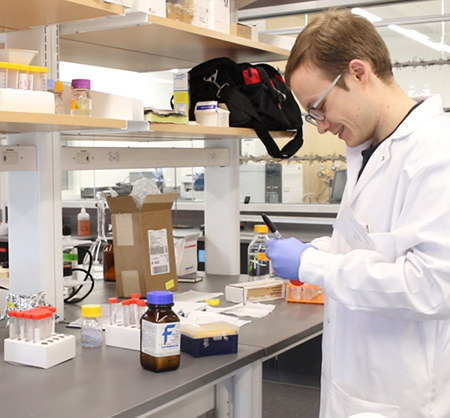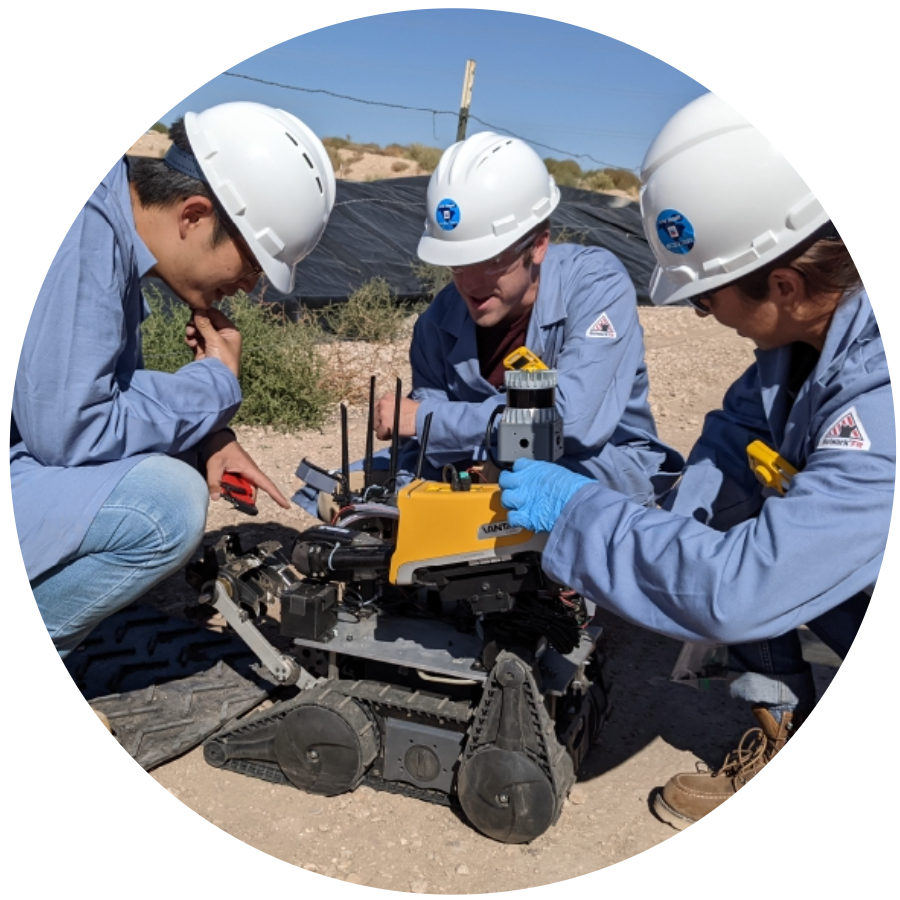PhD - Climate Resilient Environmental Systems and Technologies (CREST)
 The Climate Resilient Environmental Systems and Technologies (CREST) research program is dedicated to shaping the next generation of engineers, equipping you to pioneer sustainable and equitable environmental solutions.
The Climate Resilient Environmental Systems and Technologies (CREST) research program is dedicated to shaping the next generation of engineers, equipping you to pioneer sustainable and equitable environmental solutions.
Rooted in collaborative research, our focus is deepening the understanding of intricate natural and engineered environmental and water systems. This research fuels the development of pioneering models and technologies, steering the engineering of climate adaptation and mitigation strategies.
The essence of our interdisciplinary research program extends from nano to global scales, encompassing experimental, field, and computational methodologies.
Our research also emphasizes cross-cutting methods encompassing risk assessment, data analytics, machine learning, artificial intelligence, equity considerations, and the pursuit of environmental justice. Through these methodologies, you will develop expertise in the subject matter, essential skills, and advanced techniques required to formulate sustainable and equitable environmental solutions amidst a changing climate.
Our faculty lead cutting-edge research in these domains and innovative solutions, reshaping the future of environmental engineering amidst the challenges of a changing climate.
Our Thematic Focus Converges on Three Key Domains:
Climate Change Adaptation and Mitigation |
Addressing the pressing issue of climate change, this domain encompasses energy and water systems, adaptation and mitigation strategies, decision-making processes, and holistic planning and management approaches. |
Environmental and Water Systems |
This facet delves into water reuse, stormwater management, and glacier dynamics. These investigations can potentially reshape how we interact with and manage our natural systems. |
Environmental Technologies |
This domain delves into cutting-edge technologies such as nanotechnology, biotechnology, sensors, and advanced sensing techniques. The goal is to harness innovation for environmental monitoring and management. |
PhD Research
Understanding Climate Change Risks to Water System Reliability
 PhD candidate Zia Lyle's research examines the impact of climate change on drinking water utility systems in the United States. Her study identifies varying levels of concern and preparedness, highlighting the need for more comprehensive climate adaptation plans and directed guidance to address future climate hazards in the drinking water sector.
PhD candidate Zia Lyle's research examines the impact of climate change on drinking water utility systems in the United States. Her study identifies varying levels of concern and preparedness, highlighting the need for more comprehensive climate adaptation plans and directed guidance to address future climate hazards in the drinking water sector.
Analyzing Waste Pit Contaminants

Researchers are using robots to increase both safety and speed in the remediation process. The research team is working to develop terrestrial robots that can potentially autonomously explore natural environments, select sample locations, extract samples, and analyze the data online without exposing humans to hazardous conditions.
Dive into Research
David Rounce: The Response of Glaciers, Water Resources, and Hazards to Climate Change
 Civil and Environmental Engineering’s David Rounce discusses his research on water resources and glacial melting and how it affects our world, locally or globally.
Civil and Environmental Engineering’s David Rounce discusses his research on water resources and glacial melting and how it affects our world, locally or globally.
Campus to Career
Farming Data, Improving Production
Arvind Murali Mohan (MS ’10, PhD ’13), co-founder of foris.io, a Silicon Valley precision agriculture startup, uses technology to help farmers optimize crop production. The company aggregates data from farming technologies, aiding farmers in resource optimization and traceability. Mohan credits his time at Carnegie Mellon University for fostering his interdisciplinary thinking and research skills, which have proved valuable in his current role.
